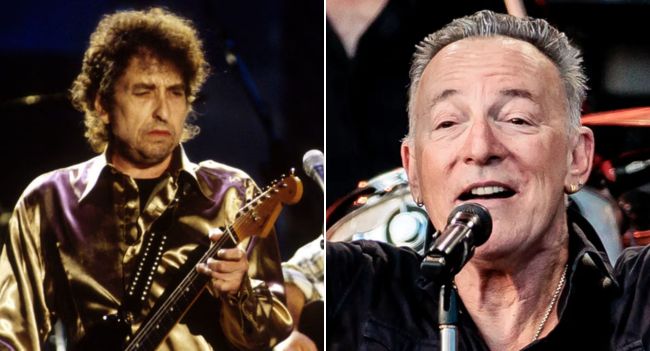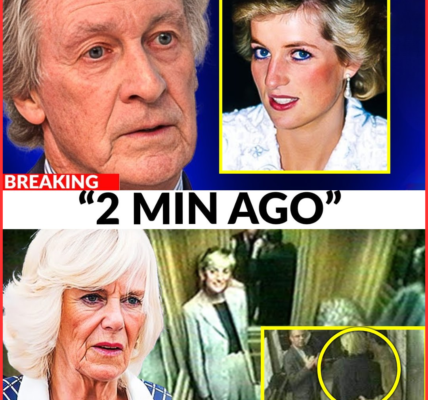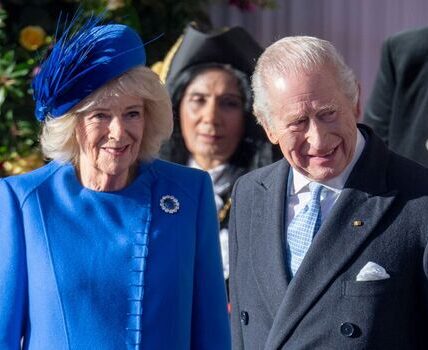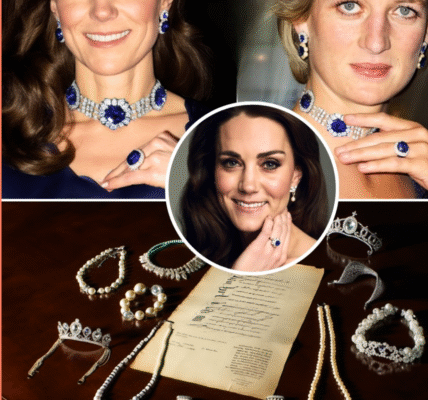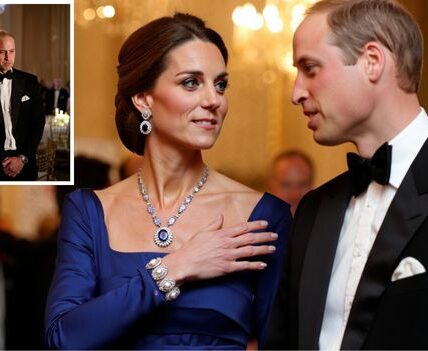“One Song,” He Whispered Into the Microphone, “Can Carry a Thousand Truths.” and With That, Bruce Springsteen Took a Breath and Began. Alone on the Kennedy Center Stage, Guitar in Hand, He Sang Bob Dylan’s “The Times They Are A-Changin’” Not as a Performance—But as a Plea. No Lights. No Band. Just That Weathered Voice, Thick With Decades of Grit, Hope, and Heartbreak. The Room Held Its Breath. Lawmakers, Artists, War Veterans, and Schoolchildren Alike SAT Frozen—Some With Eyes Closed, Others With Tears Falling Freely. In That Fragile Silence, Springsteen’s Raw Delivery Didn’t Just Honor Dylan—It Reignited Something Deep Within the Soul of the Nation. A Reminder That Even Now, Change Is Still Possible, and Truth Still Sings.
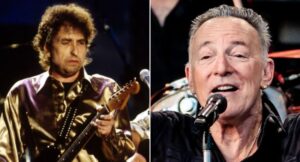
In a night carved into the soul of American cultural memory, Bruce Springsteen took the stage at the 1997 Kennedy Center Honors and delivered more than a performance—it was a raw, reverent offering to one of music’s most enduring prophets: Bob Dylan. With his unmistakable rasp and stripped-down gravitas, Springsteen’s rendition of “The Times They Are A-Changin’” became more than homage. It was a mirror, a message, and a movement rekindled.
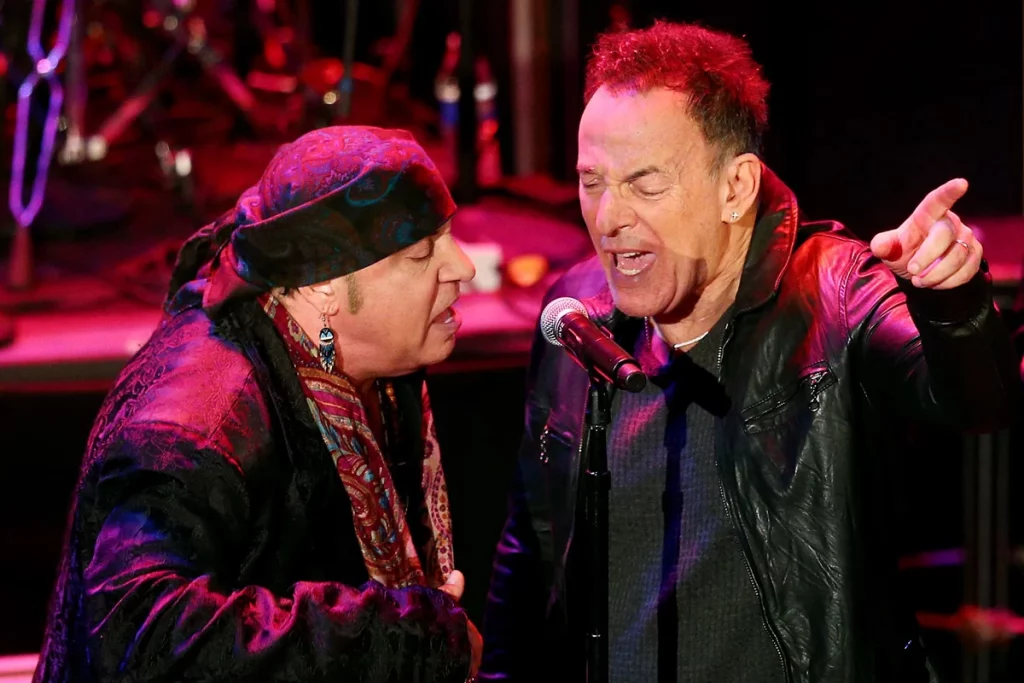
The grandeur of Washington, D.C.’s Kennedy Center glowed with the presence of dignitaries, artists, and luminaries. Yet, when Springsteen emerged from the wings, dressed in black and haloed by golden light, the room shifted. It was a moment steeped in stillness and anticipation. With every stroke of his guitar, he summoned something ancient and urgent—an echo that had never quite faded.
From the first words—“Come gather ’round people wherever you roam…”—Springsteen did more than revisit Dylan’s anthem. He reignited it. With each line, he conjured the spirit of a generation that had once marched through fire and fog, but his voice wasn’t bound to the past. It cut through the present, laced with grit and grace, reminding everyone that the times are not just changing—they’re demanding it.
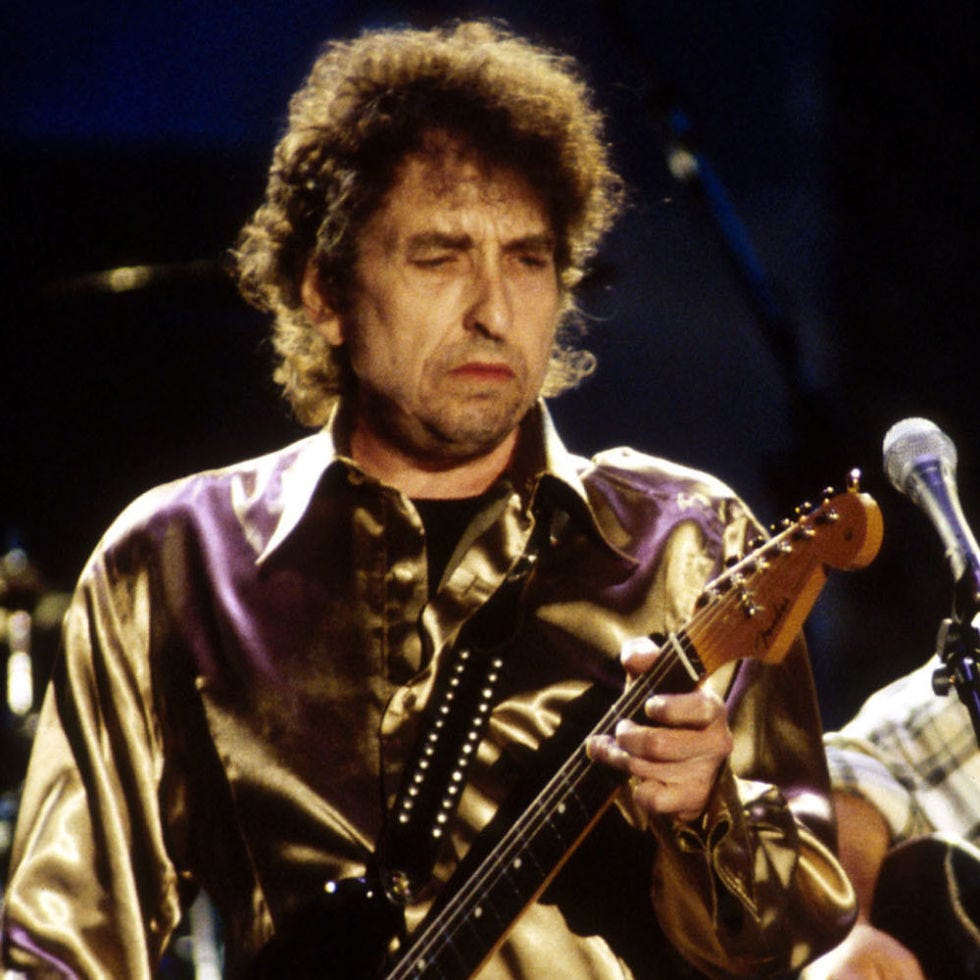
On Thursday, Springsteen’s website published an excerpt from the autobiography to honor Dylan’s Nobel win. In it, Springsteen praises Dylan’s unmatched ability to conjure the image of home, of American living rooms in American small towns, all in the lyrics of a four-minute song:
Highway 61 Revisited and Bringing It All Back Home were not only great records, but they were the first time I can remember being exposed to a truthful vision of the place I lived. The darkness and light were all there, the veil of illusion and deception ripped aside. He put his boot on the stultifying politeness and daily routine that covered corruption and decay. The world he described was all on view, in my little town, and spread out over the television that beamed into our isolated homes, but it went uncommented on and silently tolerated. He inspired me and gave me hope. He asked the questions everyone else was too frightened to ask, especially to a fifteen-year-old: “How does it feel… to be on your own?” A seismic gap had opened up between generations and you suddenly felt orphaned, abandoned amid the flow of history, your compass spinning, internally homeless. Bob pointed true north and served as a beacon to assist you in making your way through the new wilderness America had become. He planted a flag, wrote the songs, sang the words that were essential to the times, to the emotional and spiritual survival of so many young Americans at that moment.
As the chorus rose, so too did the audience. Figures of power and prestige leaned in, hushed and humbled. The simplicity of the performance made it seismic. Springsteen wasn’t embellishing; he was excavating. Each lyric, delivered with quiet conviction, became a thread stitching the past to the present. This wasn’t just Dylan’s song anymore—it was everyone’s.
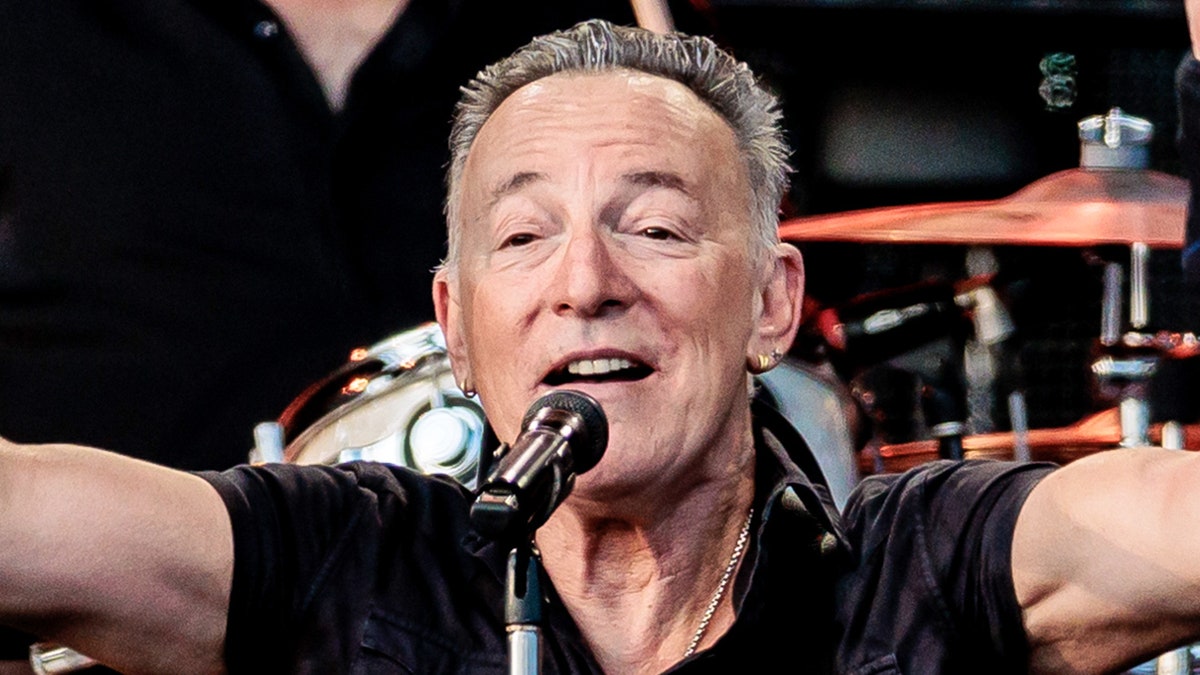
What made the tribute unforgettable wasn’t any grand spectacle. It was the absence of it. No theatrics, no pretense—just reverence. Springsteen didn’t attempt to reinterpret Dylan; he let the song speak through him, with the clarity of a conscience and the weight of lived truth. Every verse was a testament, a bridge built of empathy and endurance.
For Dylan—always the elusive bard—the moment seemed to land with subtle impact. He sat in his seat, offering a small, knowing smile, the kind that says more than applause ever could. It was clear: the message had been received, not as a relic, but as a living pulse.
That evening, Bruce Springsteen didn’t just honor Bob Dylan—he amplified him. He reminded the world that songs of protest and purpose don’t gather dust. They gather strength. “The Times They Are A-Changin’” became, once again, a rallying cry—not locked in history, but alive in the now.
And as the final notes dissolved into the night, something lingered. A spark. A truth. That as long as voices like Springsteen’s carry Dylan’s fire forward, the world will always have reason to change—and to hope.
